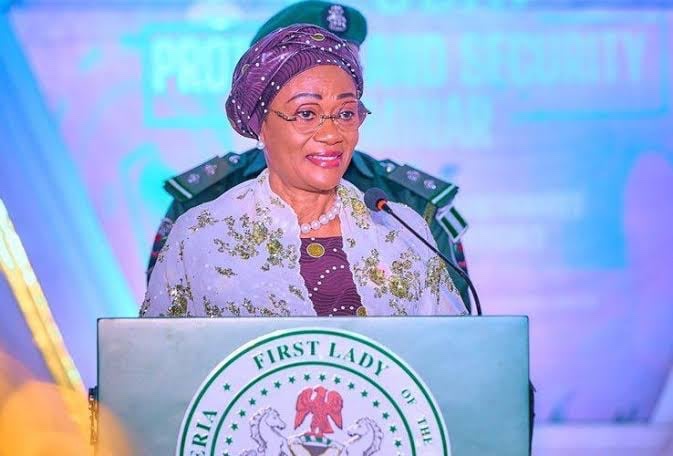

Nigeria’s First Lady, Senator Oluremi Tinubu, on Monday, October 13, 2025, disbursed ₦50,000 grants to 500 women in Plateau State, totaling ₦25 million, under the Renewed Hope Initiative (RHI) — a program aimed at supporting small business startups and empowering women across Nigeria.
The initiative, officially confirmed by Punch and the Nigeria Startup Act platform, continues the First Lady’s nationwide empowerment tour, which has previously reached Rivers, Edo, Katsina, and Ondo States since August 2025. Each phase follows a similar format — direct cash support to selected women entrepreneurs, particularly widows, artisans, and petty traders struggling to stay afloat amid Nigeria’s economic turbulence.
During the event in Jos, Mrs. Tinubu reaffirmed her commitment to “lifting women out of economic despair” and strengthening the grassroots through microenterprise support. “This empowerment is not just about money,” she said, “but about giving hope, rebuilding dignity, and encouraging women to become financially independent contributors to their communities.”
However, despite the program’s good intentions, public reaction online was mixed. On X (formerly Twitter), several Nigerians questioned the real impact of ₦50,000 — roughly $31 USD — in an economy battling over 34% inflation, record fuel prices, and soaring food costs. One user quipped, “₦50,000 can’t even buy a bag of rice and a carton of noodles anymore; how is this a startup fund?” Others defended the initiative as a “symbolic gesture” that could still make a small difference for low-income earners in rural areas.
Critics argue that while such grants are commendable, they fall short of addressing the structural challenges facing women entrepreneurs, including lack of access to credit, unstable power supply, and rising transportation costs. Some economists also warn that without financial literacy training or monitoring, one-off disbursements risk being unsustainable.
Nonetheless, Mrs. Tinubu’s Renewed Hope Initiative continues to gain visibility as one of the administration’s flagship grassroots programs, blending philanthropy with policy outreach. Analysts suggest it also serves a political function — reinforcing the First Lady’s image as a bridge between government and everyday Nigerians, especially women disproportionately hit by the economic downturn.
As Nigeria’s inflation continues to climb and household purchasing power weakens, the question remains whether gestures like the ₦50,000 grants can truly spark the economic renewal they promise, or whether they are, as some citizens lament, “drops of hope in an ocean of hardship.”


